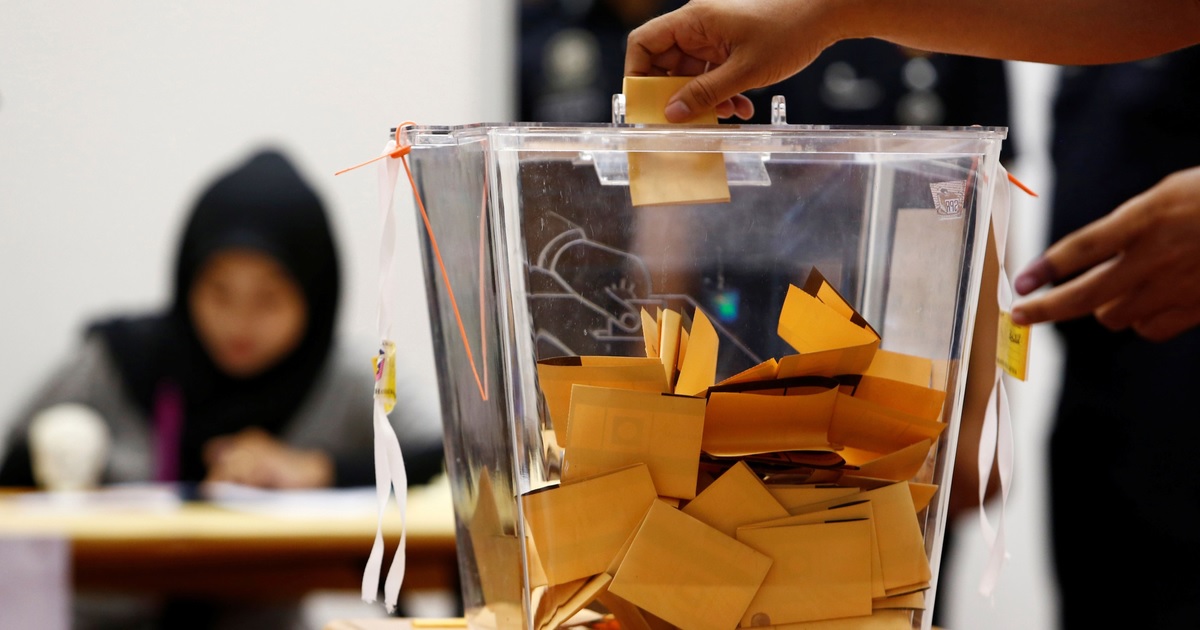September 21, 2022 9:58AM
Peninsular Malaysia GE15 Election Poll Prediction

As the 15th Malaysian General Election (GE15) looms over the horizon, there is a growing interest to know which party is currently leading in the Malaysian political landscape. Vodus Research has conducted nationwide GE15 Election Polling Pulse Check survey to establish the pre-election sentiment among Malaysian voters and predict the election outcome.
This article focuses on the voters’ sentiment and election prediction for Peninsular Malaysia. The GE15 voters’ sentiment and prediction for Sabah and Sarawak is reported in another article.
Methodology
This survey was conducted from 21st July to 21st August 2022 using Vodus’ proprietary OMTOS online survey method that enables a survey audience sampling reach of 17 million Malaysians (53% of population) through a network of major online media platforms. In total, Vodus has surveyed 74,582 Malaysian voters nationwide to generate data and insights that accurately represents the Malaysian voting population. The Likely Voter model is used to calculate the voting score and predict winner of each parliamentary constituency. In the Likely Voter model, each vote of the respondent is weighted according to their likelihood to vote.
GE15 Polling Result by Parliamentary Seats
The changes in the dynamics of the parties since the 2018 general election have created a three-way battle between the Barisan Nasional, Pakatan Harapan and Perikatan Nasional, with Barisan Nasional leading the pack.
Out of the 165 parliamentary seats in Peninsular Malaysia, there are 49 seats that are still ‘undecided’. This indicates that there are still quite a few voters who have yet to make up their mind on which party to support and can be swayed by any political parties.
Amongst the parliamentary constituencies that have clear leaning towards a party, 55 seats have leaned towards Barisan Nasional, followed by 35 seats for Pakatan Harapan and 26 for Perikatan Nasional. Barisan Nasional is currently leading the poll in Peninsular Malaysia with highest number of parliamentary seats and has the greatest number of seats across most states.
Barisan Nasional is leading with majority seats in Johor (19 seats), Perak (10 seats), Negeri Sembilan (3 seats) and Pahang (5 seats). PAS is leading in its stronghold states of Kelantan (6 seats) and Terengganu (4 seats), while Pakatan Harapan has a lead in Kedah (5 seats), Penang (7 seats) and Kuala Lumpur (7 seats).
Interestingly, the election in the richest state in Malaysia by GDP, Selangor, is expected to be a closely fought battle between Barisan Nasional and Pakatan Harapan. Pakatan Harapan is leading with 7 parliamentary constituency seats, closely followed by Barisan Nasional (6 seats) and Perikatan Nasional (4 seats), while five of the constituencies are still not aligned. Selangor is expected to be key battleground in GE15, whereby observers will be keeping a watchful eye to see if Pakatan Harapan will continue to lead the Selangor state government for another 5 years or end their 14 years reign that began in 2008.
Popular Votes
The 20 parliamentary seats lead by Barisan Nasional is not reflected in the popular votes, where the popular votes lead over Pakatan Harapan is only 3%. If the respondents’ votes are not weighted according to their likelihood to vote as per the Likely Voter model, Pakatan Harapan leads Barisan Nasional by 2% in popular votes. This indicates that Pakatan Harapan voters have somewhat lost momentum that have fueled the historic change in the federal government in 2018, whereas Barisan Nasional voters are more eager to vote in GE15 probably to avoid the 2018 election loss being repeated.
Likelihood to Vote
Three-quarter of the voting population claimed that they will likely turn out to vote on election day. Overall attendance is expected to be modest as compared to GE-14 in 2018. Mature voters that are aged over 45 have the highest likelihood to vote, where 51% of the voters in this segment are very likely to cast their votes. Perhaps mature voters are more driven because they already understood the value of their votes.
As the Undi18 makes its debut, all eyes will be on this segment of new voters. Will they be the kingmakers? Our survey shows that the first-time voters who are aged between 18 to 24 stood out as having the lowest likelihood to vote, where only 34% claims that they will very likely vote in GE15. Hence, encouraging the first-time voters to vote can be a game-changer to change the tide of election.
Three-quarters of Males and Bumiputera voters are likely to turnout for vote, while Females are the least enthusiastic voter segment, followed by Chinese.
Reasons for Not Voting
What could be the reasons that are holding back voters to go out and vote on election day? Afterall, this important day only comes around once in every five years for Malaysians to exercise their voting rights. The top three barriers identified in this survey are the perception that all politicians are indifferent, lack of knowledge in politics and concerns that infectious disease may spread (eg. COVID-19).
38% of those unlikely to vote in GE15 perceived that all politicians are the same. Voters’ profile that are most discouraged by this reason are those from the stronghold states of Kedah and Kelantan, experienced voters aged 45 to 54 years old, Males and Bumiputera. There is an opportunity for politicians to make clear distinctive positioning and communicate how their candidates put forward stand out from others to convince the unlikely voters’ votes.
The second most common barrier for voting is the lack of knowledge in politics, where 41% of first-time voters have cited this as a reason for not voting. Many hesitant voters, particularly Chinese and females are concerned about their own knowledge in politics.
The third most cited reason for not voting is interestingly not related to politics. Simply, Malaysians have returned to the normalcy of the post pandemic but remained cautious of infectious diseases spread, such as COVID-19, in crowded voting centers.
For more info on our state-level and demographic deep dive analysis, or if you want to know more about our proprietary OMTOS survey technology, please contact us in the form below or email us at contact@vodus.com.













